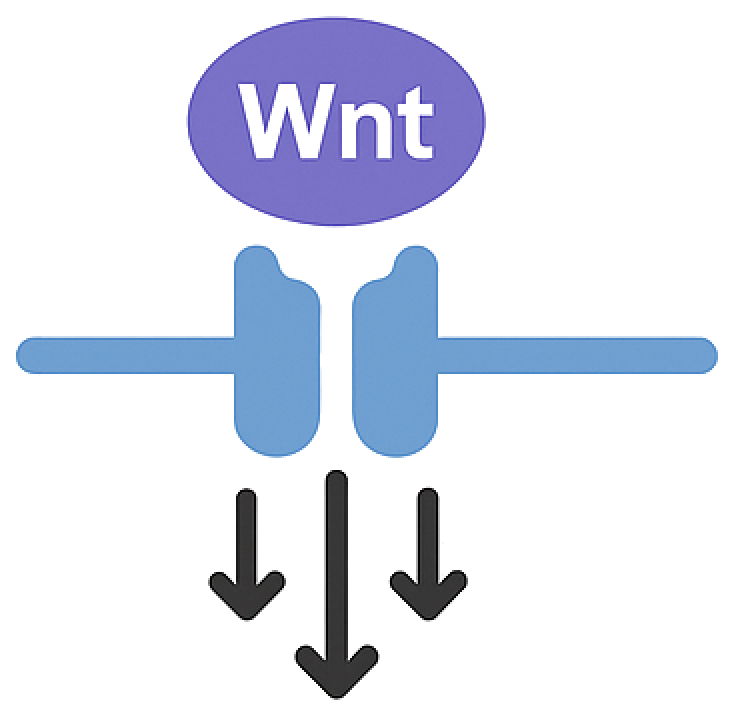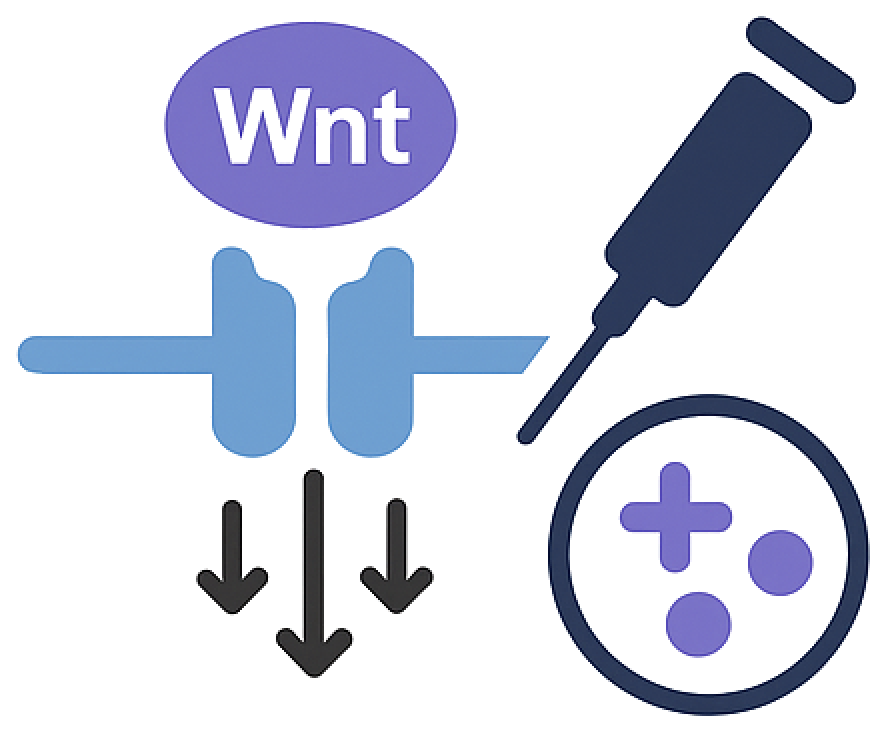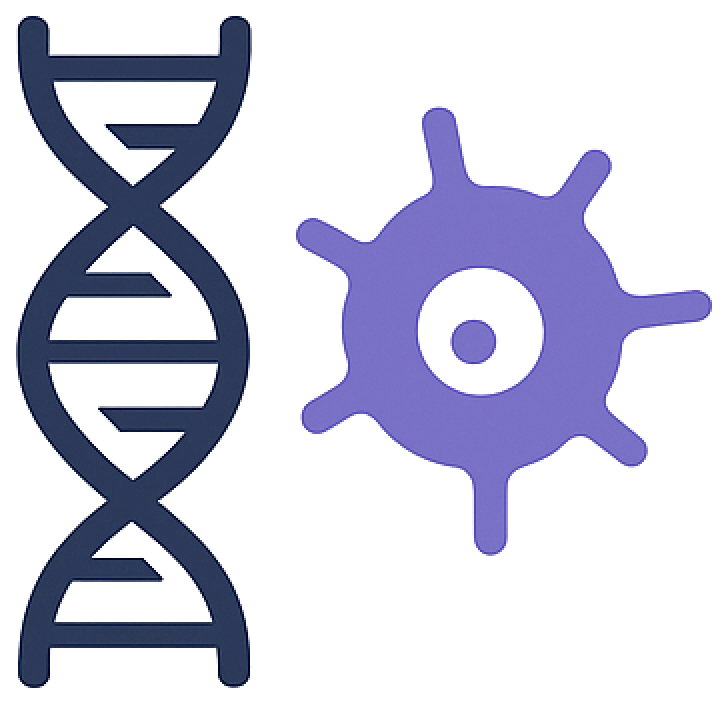
Theme 1 — Molecular Logic of Wnt Signaling
We study the Wnt pathway from receptor complex activation to nuclear output. Using cell biology, functional genomics and biochemical approaches. We defined how Dishevelled assemblies form at the membrane and correlate with pathway activation (PNAS 2020), and uncovered an IPO11-dependent route for β-catenin nuclear import in a subset of colorectal cancers (J Cell Biol 2020). We also analyze receptor–coreceptor usage (FZD/LRP5/6) and scaffolding dynamics to explain how 19 Wnts and 10 FZDs encode specificity. To precisely probe this code, we engineer receptor-selective Wnt surrogates, including tetravalent antibodies that potently and specifically activate Wnt/Frizzled signaling in cells, organoids, and mice (eLife 2019). Using these tools, we uncovered a novel regulatory mechanism of the Wnt pathway during neural patterning involving modulation of FZD5 cell surface expression levels (Development 2024). More recently, we described a two steps mechanisms for Wnt receptor activation (Submitted) For broader context, see our recent review of the Wnt pathway (Nat Rev Mol Cell Biol 2025) and recent perspective on therapeutic modulation of the Wnt payhway (Trends Pharmacol Sci 2023).

